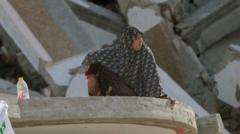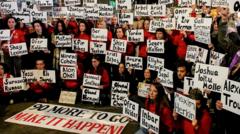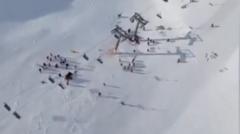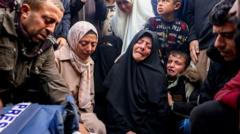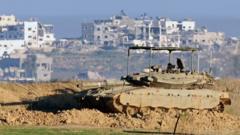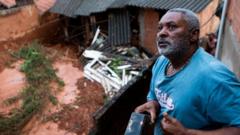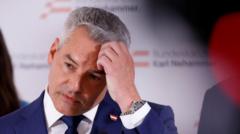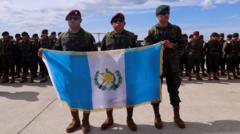In the aftermath of catastrophic floods that claimed over 218 lives in Spain, political unity has crumbled, leading to intense finger-pointing among local and national leaders. The response to the disaster and the dispatch of aid has come under scrutiny as tensions escalate.
Political Fallout Intensifies Over Spain's Flood Disaster
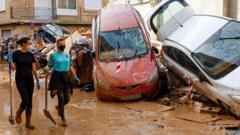
Political Fallout Intensifies Over Spain's Flood Disaster
A week after deadly floods in eastern Spain, political unity gives way to blame-shifting as leaders face accountability.
In the wake of the devastating flash floods that swept through eastern Spain, a sense of unity among political leaders has quickly dissolved into a whirlwind of accusations over who is responsible for the tragic disaster that has claimed at least 218 lives. As anger mounts from the affected communities, leaders are now critiquing each other's responses and decision-making prior to and during the calamity.
Initially, Valencia's regional leader, Carlos Mazón of the conservative People’s Party (PP), extended gratitude towards Prime Minister Pedro Sánchez in the wake of the disaster, demonstrating a temporary stance of cooperation amidst Spain's politically polarized environment. However, as details emerged regarding the delayed response to a red weather warning issued by Spain's national meteorological agency, Aemet, Mazón’s initial supportive tone has given way to defense against growing calls for his resignation.
Critics have highlighted that a crucial approximately 12-hour delay in communication regarding the impending weather issue contributed to the scale of destruction. Amid this turmoil, PP national leader Alberto Núñez Feijóo has raised questions about information flow from Aemet, suggesting a lack of coordination between national and regional levels.
As scrutiny intensified on Mazón's handling of events, he shifted focus, alleging that the hydrographic agency, CHJ, was at fault for failing to react promptly to rising waters. In sharp rebuttal, the CHJ clarified its role, asserting it does not control alert issuance, which sparked further disputes concerning operational responsibilities.
While reinforcement in the form of 15,000 military, civil guards, and police was mobilized to assist, disputes simmered over whether sufficient support was solicited from the military. This builds on tensions within emergency protocols that dictate the regional government's authority to request military assistance.
Political dynamics have further evolved, following calls from Feijóo supporting a national state of emergency, a move that would centralize crisis management in Madrid and strip powers from Valencia's regional administration. This position has echoed sentiments within the far-right Vox party, complicating already heated discussions regarding responsibility for the inadequate state response.
Recent public reactions have encapsulated rising frustration. During a visit to the hardest-hit Valencian town of Paiporta, leaders—including the king—faced a hostile reception, with locals expressing their fury by chanting accusations of negligence. As these tensions escalate, Mazón has proposed a €31.4 billion reconstruction plan while Sánchez has announced a separate aid package of €10.6 billion, reiterating the call for cooperative governance amidst disaster recovery.
“As Spaniards, we want to witness our institutions cooperating, rather than squabbling,” Sánchez emphasized in a recent statement, urging a collective approach to recovery efforts.



